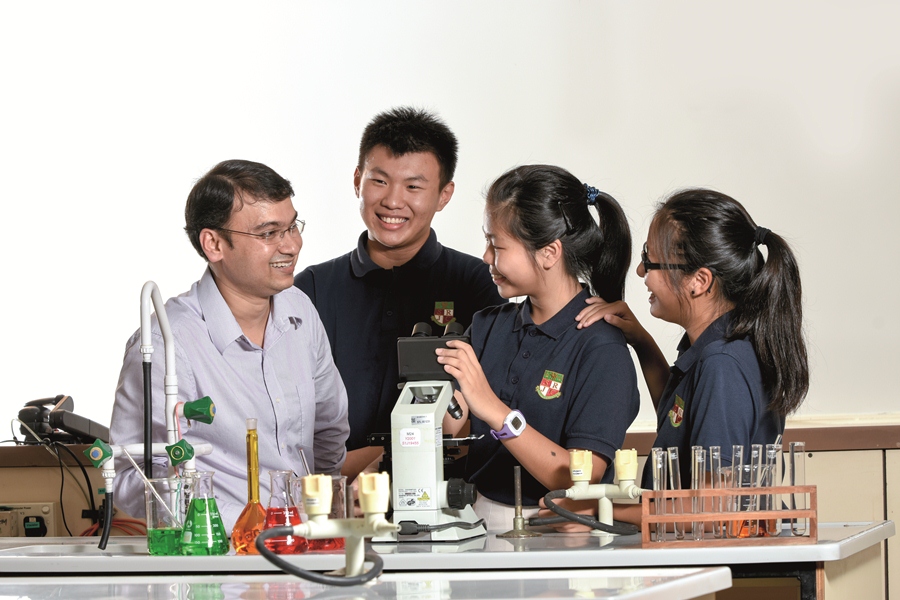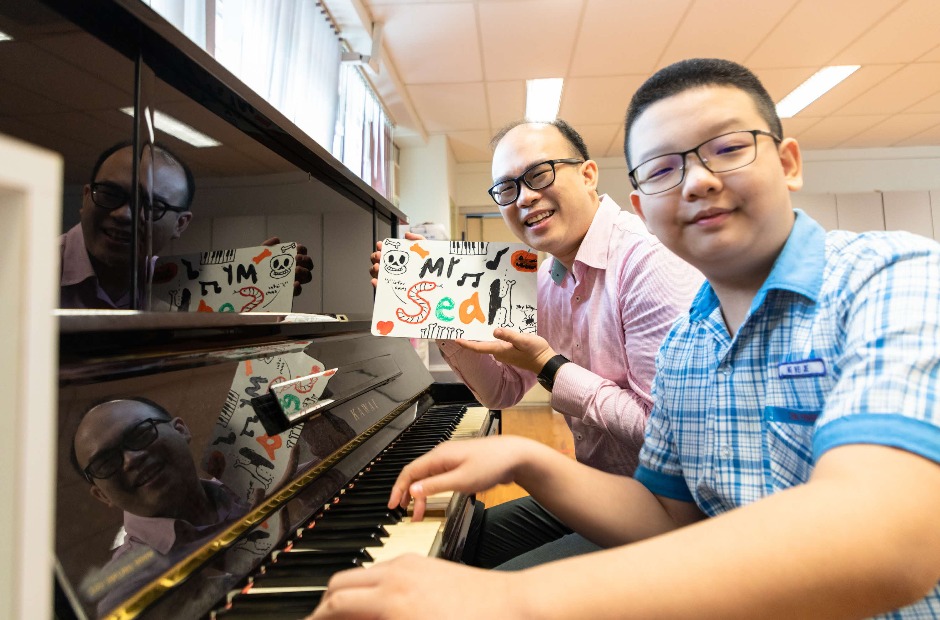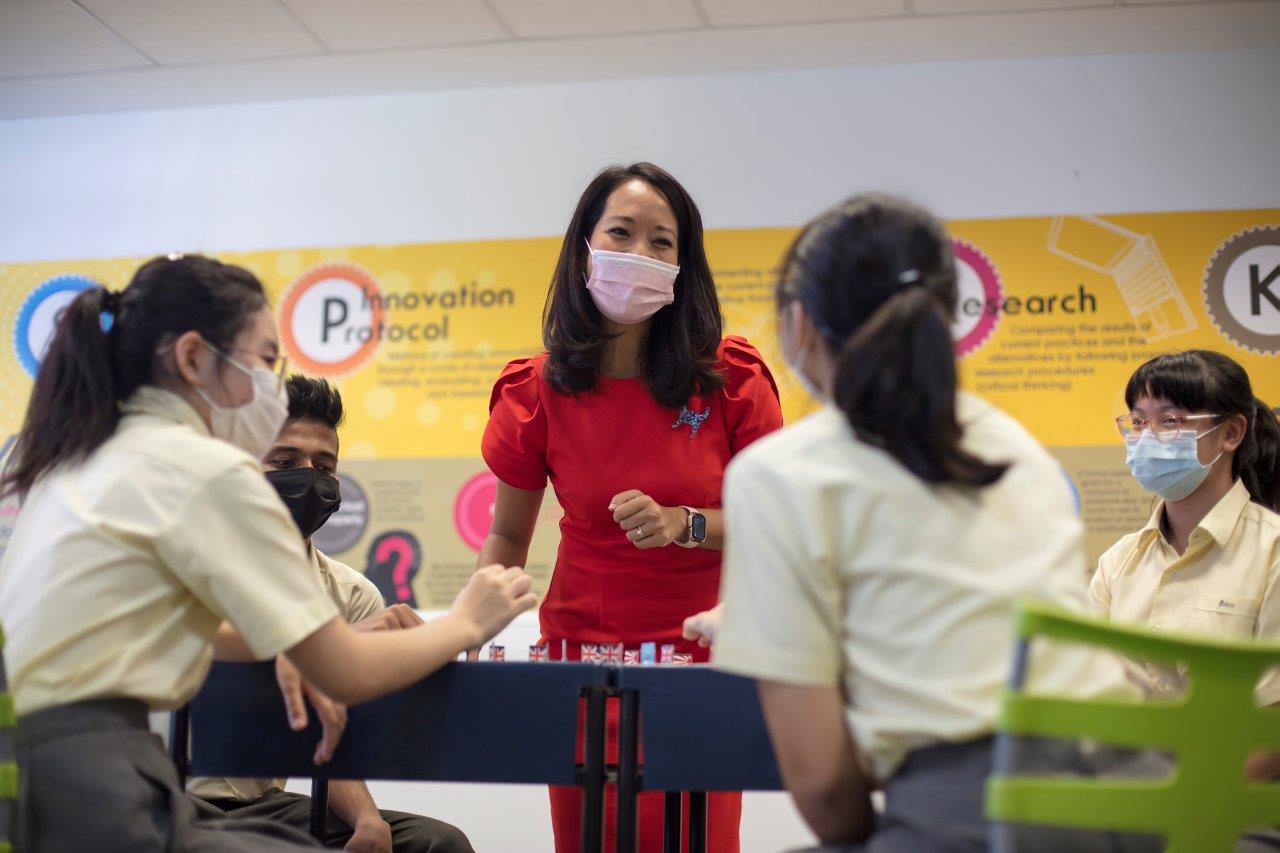The Teacher’s Teacher
03 Sep 2015


As a new teacher, Mr Muhammad Salahuddin was thrown into the deep end. Through the process, he emerged stronger and is today an advocate of training and support for both new and experienced teachers. He leads the way as a tireless mentor and hopes to create communities of teachers who fearlessly share and learn from one another.
Muhammad Salahuddin, President’s Award for Teachers 2015 Award Winner
Serangoon Junior College
Right after I stepped out from teacher training, my first job as a Beginning Teacher (BT) was preparing materials, lecturing, tutoring and marking the work of over 100 students across two levels! I kept this up for three years – and yes, it was a challenge.
I would say I was fortunate, because this steep learning curve proved to be a career-defining moment. It made me see just how much support BTs need. The first few years of teaching can truly make or break a teacher, and I am driven to help those I encounter find their place in the teaching service.
A Heart for Newbies
Since 2008, I have thoroughly enjoyed mentoring about four new teachers every year by giving them advice, observing them in class and helping them to hone their craft.
A common issue they face is how to ensure that their students do not just enjoy lessons, but really understand what is being taught. Teaching teenagers requires not just classroom engagement, but also cognitive engagement. The key skill to getting there is through questioning and most BTs find this difficult. Asking students good questions and responding to their answers in a way to help them arrive at a ‘eureka’ moment is not instinctive.
They also want to know how to connect with students. This is an area close to my heart, for I strongly believe that teachers need to emotionally connect with their students to motivate and influence them. Often, the building of these emotional bridges occurs outside the classroom.
I like to tell them a story of how I got through to a student who was lazy but reticent. She had failed her first year of college, scraped through to the second, and I was convinced that I had to gain her confidence to boost her performance. There were certainly no opportunities during school time but I seized the chance during a two-day overnight camp. I gamely joined in the activities and took the time to speak to her and understand her better.
Once I gained her trust, she revealed that she acted like she did not care because she was afraid to fail. I then knew that I had to let her savour small successes. I taught her study skills and she started doing well in tests. Imagine my pride when her ‘A’ levels results were good enough for her to get into Nanyang Technological University, where she chose to study Biological Science!
The connections that I make with my students stay strong for years even after they leave the college. Former students still call me when they need help or a listening ear. That is why I have not changed my mobile phone number since I started teaching in 1998!
It is my hope that the teachers I help will go on to make the same sort of impact on their students. Happily, most of the Biology teachers I help do well in Practicum: three obtained Distinction grades. Another eventually became the Subject Head (Biology) in my college, went on to do her post-graduate studies and is currently with the Curriculum Planning and Development Division.
Guidance for Experienced Teachers
Experienced teachers who find themselves doing something new, or who simply want to improve themselves, appreciate guidance too.
One area which I have championed is providing support for new Civics Tutors (CT), who may be experienced teachers put in charge of a class for the first time. When I was a CT, I realised that I was the first in line to help students who were grappling with emotional or family issues, and that my administrative load was doubled. Even experienced teachers need to learn how to not only take care of their students, but themselves.
So I started a Mentor CTship programme in 2012. Senior Teachers with CT experience are assigned to stand side-by-side with new CTs, helping them to manage their time, troubleshoot and anticipate problems, deal with parents, get to know the class more intimately, and even go into the new CT’s class to give pep talks. All CTs in my college are also given a 48-page booklet which I wrote two years ago over the December holidays called Winning the Hearts and Minds of your Civics Group, which dispenses tips on how to do this, like seizing the chance to chat with and get to know students before assembly.
The More We Get Together
I enjoy sharing what I know, because there is power in collaboration.
Even in my teaching, I find that when students support and learn from one another, they can achieve more than if they studied alone. When I was trying to help one of my students to gain confidence in her academic results, I got her classmates to support her because they spend more time with her than I do. Likewise, when I had to lead the JC’s Biology cohort last year in the absence of a Subject Head, I got them to motivate one another. The family-like culture of love and support, where they learn together as a team, helped them to score the best Biology results in my college’s history.
In helping teachers, I also create a wider support network. Once, a teacher confided in me. She was newly married, but she had problems managing her time between work and family. I brought in other teachers to work with her and the encouragement from others helped her during that difficult period.
This collaboration, if taken to a national level, can truly uplift the profession. That is why I work closely with the Academy of Singapore Teachers (AST) to run workshops at a national level, for it enables me to help teachers beyond my college. It is through these workshops that I have gotten to know teachers from other schools, who have called on me to mentor them or help them with research projects.
More importantly, these workshops empower teachers to take charge of their work and start influencing their peers in school. For instance, I helped initiate a structured two-year induction programme with a Master Teacher at AST, for new Biology teachers in JCs and secondary schools. We used to run it together, but now other Senior Teachers have stepped up to conduct the course. They volunteered to help their peers and that is truly empowering.
Even at a personal level, teachers may sometimes think they are not good enough to ‘instruct’ their colleagues, but it is not about knowing everything. It is about allowing the teacher to discover things for themselves. Good mentoring, like good teaching, is all about the mentor asking the right questions. Just start the conversation.
Muhamad Salahuddin Bin Ibrahim, 43
Lead Teacher (Biology)

.jpg)



